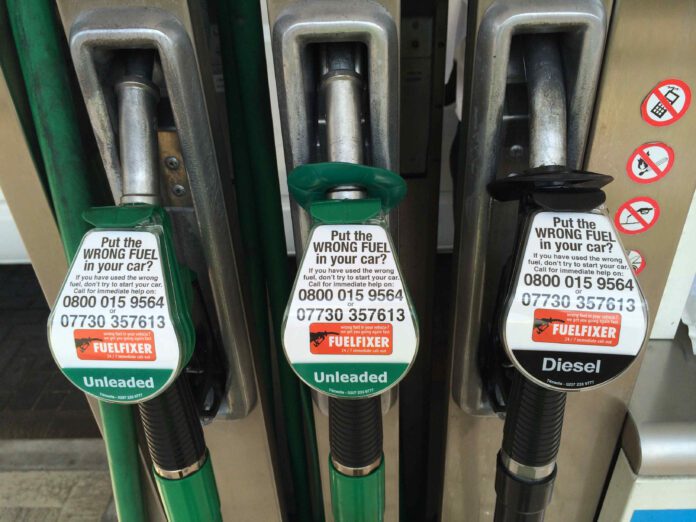Fleet effectiveness refers not simply to a measure against which a company can judge its progress; it is, in the rush and stress of competition, a lifeline. Business owners and fleet managers in UK need to be equipped with innovative solutions to keep up with the complexities of managing vehicles and remain cost-effective and environmentally responsible. Advanced telematics are the cornerstones of achieving these ends, as they afford unparalleled insights into fleet operations even as they enhance productivity overall.
Telematics solutions reshape the landscape of travel. Combining GPS technology with vehicle diagnostics and data analytics, they provide one cohesive platform for performance evaluation. Route optimization, fuel monitoring, and driver behavior analysis are among the innovations that enable business enterprises to exploit telematics technology by enabling them to work within the desired radius of service more effectively. This improves competitiveness in the realities of customer expectations and saves fuel by minimizing wastage and vehicle wear and tear.
The Core Benefits of Telematics for Fleet Management
Telematics system makes it possible for fleet managers to make informed decisions by providing a real-time data stream. Here are some of the features:
- Improved Routing: Telematics recommends the most fuel-efficient route for travel through the analysis of the traffic pattern and condition. This actually saves travel time, fuel, and reduces idling.
- Maintenance of Vehicles: Improved Predictive maintenance alerts serve timely servicing and shield the vehicle from high costs of breakdowns and extend its lifespan.
- Driver Behavior Monitoring: The measurement of speeding, harsh braking, and rapid acceleration enables a business to make behaviorally focused training programs for drivers that would cut down accidents and insurance costs besides improving performance.
- Fuel Efficiency: Fuel is among the greatest overhead costs of fleets; hence, telematics involves the users in fuel usage patterns that help recognize inefficiencies and opportunities for fuel savings.
- Regulatory Compliance: Hours of Service (HOS) and other compliance data are tracked automatically so that they can comply with the letter of the law, making any risk of fines minimal.
Fuel Cards: A Small Business Game-Changer
Managing fuel expenses in one’s fleet could be quite a headache for small business owners. This is where the fuel card comes in. Fuel cards are designed for specific businesses, and they provide a perfect control mechanism for fuel spend as well as monitoring. Fuel cards become more beneficial when integrated with telematics systems, giving extensive reporting on fuel usage and trends across your fleet.
These fuel cards allow businesses to negotiate certain discounts at given fuel stations, thus cutting total costs. For instance, some providers offer mixed pricing or rebates, thus allowing for more predictable budgeting. Additionally, a great many fuel card solutions in the UK have compatibility to leading telematics platforms which gives small businesses possibility to go as far as measuring fuel consumption down to individual vehicles. This makes it easier to detect efficiently.
How Telematics Transforms Fleet Operations in the UK
Increased fuel costs, urban congestion, and tougher environment laws give rise to unique business problems in the UK. Advanced telematics systems address these by following features:
- Urban Specific Optimization: Heavy congested cities such as London and Manchester require navigation above just GPS. Telematics systems with AI-powered analytics manage to predict traffic flow and suggest alternative routes to avoid delays.
- LEZ Compliance Telematics: platforms for complying with the Low Emission Zone and Ultra Low Emission Zone (ULEZ) standards monitor vehicle emissions and suggest eco-friendlier driving practices.
- Driver Safety and Training: Because of increasing cases of road accidents, telematics systems play a major role in safety. For instance, in-cab alerts for unsafe driving behaviors, and post-hits analysis reports that provide actionable ways forward mean continuous improvement on the part of the driver.
- Custom Reporting: a Typical British fleet manager will want to have his report customized for regulatory and operational purposes. Telematics would then provide such flexible reporting options, adaptable to the business’s needs as monitoring fuel consumption or monitoring driver hours.
The Role of Data in Maximizing Fleet Efficiency
Telematics solutions have at their heart data, and from the collection and analysis of lots and lots of data, businesses can identify trends and patterns otherwise lost in the noise. For example, measuring fuel consumption data over long periods of time will show that a vehicle was underperforming from a mechanical breakdown if such an issue was never resolved. Similar results can often be obtained through the analysis of driver behavior, helping to identify where training might be well applied to improve safety and efficiency.
Sustainability and Environmental Impact
In addition to the advanced telematics solutions infrastructure, sustainability goals are also integrated into businesses’ overall systems. Companies can significantly minimize their carbon footprint by reducing fuel used and optimizing travel routes. Most telematics platforms now offer eco driving modules for real time driver feedback on how to improve the sustainability of their driving patterns.
Challenges and Considerations
There are many advantages of telematics, but it also comes along with challenges. Setup costs remain a constraint for most firms, especially smaller organizations. However, high savings on fuel, maintenance, and insurance make good business sense over the long term, which may outweigh upfront costs.
Yet another issue is of data security. Telematics systems tend to collect a lot of sensitive information that businesses need to ensure good cybersecurity measures from the provider. Good data policies and regular audit can help reduce the risk involved.
Choosing the Right Telematics Solution
Choosing the correct telematics provider really depends on the needs of your business. Here’s what you need to consider:
- Scalability: Adapt the system according to your needs, whether it’s adding vehicles or extending your operational radius.
- Easy Integrations: Look out for those solutions that would easily integrate into the existing systems in place: fuel cards, payroll, maintenance software.
- Easy to Use: in the end an easy to use platform ensures that one can quickly have drivers and managers onboard.
- Customer Care: Timely, effective customer support can make a difference in resolving complaints and operational effectiveness at the end of the day.
Conclusion
Foe the businesses in UK Fleet efficiency maximization is nothing but a requirement and not just some competition. Advanced telematics really deliver what is needed in this regard-from cost savings to better and safer work; coverage from safety to sustainability.
Complementary with other tools like fuel cards, such systems become even stronger especially small companies, which have the most advantages in terms of what these technologies can possibly provide.
Help keep news FREE for our readers
Supporting your local community newspaper/online news outlet is crucial now more than ever. If you believe in independent journalism, then consider making a valuable contribution by making a one-time or monthly donation. We operate in rural areas where providing unbiased news can be challenging. Read More About Supporting The West Wales Chronicle


























